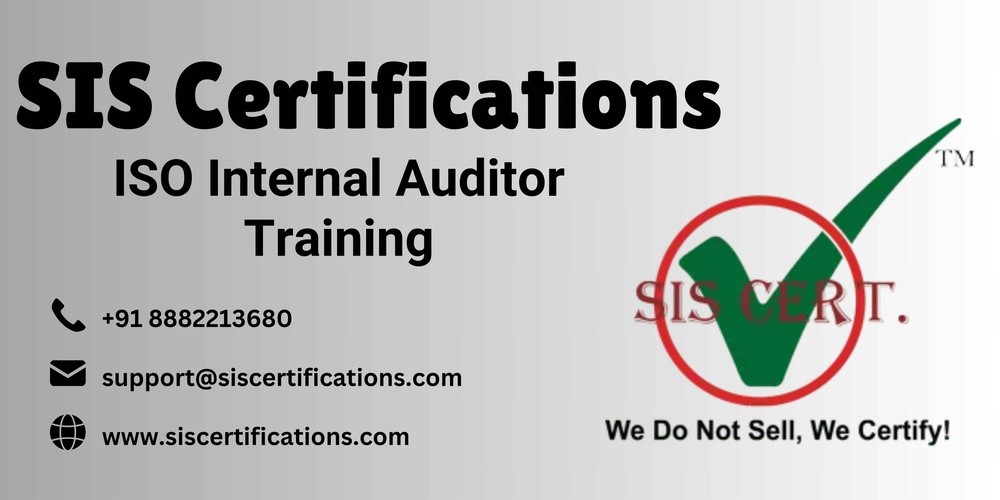What is ISO Internal Auditor Training
ISO Internal Auditor Training is a targeted educational program aimed at developing the skills and knowledge required to conduct effective internal audits of an organization's management systems in accordance with ISO standards. These standards, set by the International Organization for Standardization (ISO), offer structured guidelines for managing key aspects like quality, environmental responsibility, occupational health and safety, and information security. The training is anchored in ISO 19011, which provides comprehensive guidelines for auditing management systems, and it supports a variety of standards including ISO 9001 for quality management, ISO 14001 for environmental management, ISO 45001 for occupational health and safety, and ISO 27001 for information security.
The essence of ISO Internal Auditor Training lies in teaching participants how to objectively assess whether their organization's processes align with the chosen ISO standard's requirements. It starts with a deep dive into the standard's framework, many of which follow the Annex SL high-level structure. This structure standardizes clauses across standards, encompassing the organization's context (internal and external influences), leadership and policy establishment, planning for risks and opportunities, support through resources and training, operational controls, performance evaluation via monitoring and analysis, and continual improvement. Trainees learn to apply these clauses practically, adapting them to their specific industry or operational environment.
Audit planning is a foundational skill covered in detail. Participants are guided on defining audit objectives, scopes, and criteria, factoring in elements like organizational risks, process interdependencies, and historical data. Emphasis is placed on risk-based planning, where auditors focus on high-priority areas—such as critical quality checks in ISO 9001 or hazard assessments in ISO 45001. They create audit plans outlining timelines, team roles, and methodologies, along with customized checklists to ensure thorough yet efficient audits.
In the execution stage, the training focuses on evidence collection techniques. This includes reviewing documents for accuracy and relevance, observing operations to confirm adherence, and interviewing staff to evaluate understanding and implementation. Sampling methods are taught to handle extensive data sets, such as selecting representative samples of environmental records in an ISO 14001 audit. Objectivity is key, with strategies to document findings based solely on verifiable evidence.
Non-conformity management is a core focus. Trainees learn to identify and classify deviations—major non-conformities indicate systemic issues that could impact certification, while minor ones are isolated lapses. Root cause analysis tools, like the 5 Whys or cause-and-effect diagrams, help uncover underlying problems. For instance, in an ISO 27001 audit, a data access breach might stem from weak password policies, prompting recommendations for enhanced security training.
Reporting skills are honed, teaching participants to produce structured reports with summaries, evidenced findings, classifications, and improvement suggestions. Follow-up procedures ensure corrective actions are verified for effectiveness. Practical elements include simulations and case studies, such as auditing a service provider's customer handling under ISO 9001, identifying response delays, and proposing digital solutions.
Integrated auditing is addressed for multi-standard organizations, optimizing evaluations across frameworks. Ethical practices, including confidentiality and impartiality, are emphasized to conduct audits constructively. By program's end, participants are ready to perform audits that enhance compliance and drive value, crucial in a landscape with widespread ISO adoption.
Why Should You Attend?
Attending ISO Internal Auditor Training provides a host of advantages that benefit both individuals and organizations, making it a strategic choice for those committed to excellence.
Professionally, it propels career growth. The certification earned validates your auditing capabilities, distinguishing you in competitive job markets and opening paths to roles in quality assurance, compliance, or operations management. Skills like critical analysis and reporting are versatile, often leading to advancements and increased responsibilities.
Organizationally, it's vital for certification maintenance. Trained auditors enable proactive internal reviews, spotting issues before external audits, thus avoiding penalties or certification loss. This builds self-reliance, reducing external costs and allowing tailored assessments.
Continuous improvement is a major draw. Audits reveal inefficiencies, enabling data-driven enhancements like process optimizations under ISO 9001 or sustainable practices in ISO 14001, yielding cost savings and better performance.
Risk mitigation is enhanced, identifying threats like safety hazards in ISO 45001 or data vulnerabilities in ISO 27001, fostering resilience.
It cultivates a positive culture, promoting accountability and collaboration. Economically, the ROI is high through prevented issues and efficiencies. Attending aligns with global trends, ensuring relevance in standards-focused industries.
Who Should Attend?
ISO Internal Auditor Training is ideal for a broad spectrum of professionals, accommodating different experience levels and roles.
Quality managers and coordinators benefit to strengthen system oversight. Process specialists and operations staff learn to audit their domains effectively.
Supervisors from various departments gain tools for standard integration. ISO representatives acquire coordination skills.
Audit team members, including beginners, build foundational expertise. Consultants enhance advisory services.
Executives attend for strategic insights. It suits industries like logistics to education, requiring basic process knowledge.
Educational Approach
The educational approach in ISO Internal Auditor Training is interactive and practical, blending theory with application.
It features lectures on standards and techniques, led by experts. Discussions relate concepts to real contexts.
Hands-on simulations and role-plays practice audit scenarios. Case studies analyze actual examples.
Workshops encourage teamwork. Assessments provide feedback. Flexible formats include online options with resources for review.
FAQs
Is prior experience required for ISO Internal Auditor Training?
No, it's designed for all levels, starting with basics.
How does it differ from external auditor training?
It focuses on internal improvement, not third-party certification.
What certification is granted?
A completion certificate demonstrating auditor competence.
Can it be online?
Yes, with interactive virtual sessions.
How often to update skills?
Every 2-3 years or post-standard changes.
Does it cover multiple standards?
Many programs do, teaching integrated auditing.
Conclusion
ISO Internal Auditor Training is a powerful tool for achieving auditing proficiency, ensuring compliance, and sparking improvement. It empowers you to contribute to organizational success while advancing your career. Invest in this training to navigate standards effectively and drive lasting excellence.













